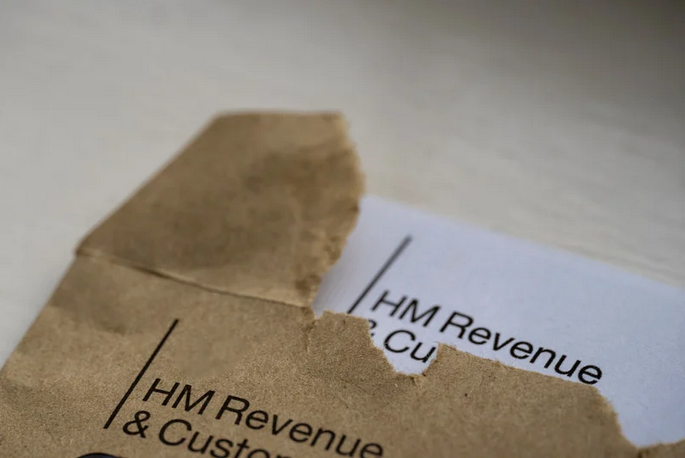Hiring Foreign Nationals in the UK: A Practical Guide to Sponsorship and Right to Work Compliance



In today’s competitive and global job market, UK employers are increasingly looking abroad to find the skills they need. Whether you're hiring a software developer from India, a marketing specialist from Brazil, or a care worker from Nigeria, employing foreign nationals in the UK comes with regulatory responsibilities.
UK employers are legally responsible for ensuring that everyone they employ has the right to work in the UK. Failure to comply can lead to fines of up to £20,000 per illegal worker and have other severe repercussions.
There are two main areas to focus on in terms of compliance are:
- Right to Work checks
- Sponsorship (for non-settled workers)
This practical guide breaks down the key steps and considerations to keep your business compliant while building a diverse workforce.
Right to Work checks: a legal necessity
Regardless of a candidate’s nationality, employers must carry out a Right to Work check before employment begins. This applies to UK nationals, EU/EEA citizens, and non-UK nationals. There are three ways of verifying a candidate’s right to work in the UK.
Online Right to Work check
This is for candidates with EU Settled or Pre-Settled Status, a Biometric Residence Permit (BRP), or Biometric Residence Card (BRC). You can check their RTW status using the Home Office’s online service.
Manual check
This is used to verify physical documents such as a passport or visa. This is done to ensure the documents provided are original, valid, and belong to the candidate.
Digital Identity Verification
This is solely for British and Irish citizens who currently hold a valid passport. Employers can use a certified identity service provider to conduct this check.
Once your RTW check has been completed in the appropriate manner, it’s important to make a copy of the check and any relevant documents. You should also note when the check was done and store this and any copies and documents securely. These records need to be retained for two years after an employee leaves the company.
Do you need a sponsor licence?
If the candidate you want to hire is not already authorised to work in the UK (i.e. they don't have Settled Status, Indefinite Leave to Remain, or a dependant visa that allows work), you’ll need to sponsor them under the Skilled Worker route.
To sponsor a worker, your company must:
- Apply for and hold a Sponsor Licence
- Issue a Certificate of Sponsorship (CoS) for the role
- Ensure the role meets the salary and skill thresholds
- Pay the required Immigration Skills Charge (ISC) and visa fees
The job must meet the Home Office's eligibility criteria. The job must be on the list of eligible occupations and pay at least £38,700 (there are lower thresholds for shortage occupations, new entrants, and specific sectors. However, the pay threshold may change, so it’s always best to double check.
How to apply for a sponsor licence
These are the steps you need to take in order to apply for a sponsor licence.
- Complete an online application
- Submit supporting documents to prove you’re a genuine organisation
- Appoint Key Personnel (Authorising Officer, Key Contact, Level 1 User)
- Pay the application fee (currently £536 for small businesses; £1,476 for large organisations)
Approval can take 8-12 weeks (or less with a priority service). Once approved, you’ll be able to sponsor foreign nationals under a range of visa routes, including the Skilled Worker visa, Senior or Specialised Worker visa, and Graduate visa.
Sponsor licence compliance
Holding a Sponsor Licence comes with ongoing compliance responsibilities as the Home Office can audit your business at any time. Therefore, you need to keep accurate records of any sponsored workers (contracts, visa expiration dates etc.), report any significant changes (such as job role, resignation etc.) via the Sponsor Management System, and renew your licence every four years for it to remain valid. Non-compliance could be extremely costly – it can lead to licence suspension or revocation, which would mean existing sponsored employees may have to leave and your ability to hire internationally could be revoked.
Alternative visas that allow international hiring
Not every hire requires sponsorship. In fact, your candidate may already have the right to work in the UK, so it’s worth asking them about their current immigration status before conducting any checks. They can work for a UK company if they have any of the following types of visas.
- Graduate visa: recent UK university graduates (valid for two years)
- Youth Mobility Scheme: nationals from select countries aged 18–30
- Dependant visas: family members of skilled workers or students
- Global Talent / Scale-Up visas: for highly skilled or fast-growing sectors that require skilled professionals
With the right systems and understanding in place, employing international workers doesn’t have to be daunting. It's an opportunity to bring diverse skills, global insight, and fresh energy to your team – an opportunity that should be both championed and embraced.
FAQs
FAQs
This depends on the industry and type of role you are recruiting for. To determine whether you need reference checks, identity checks, bankruptcy checks, civil background checks, credit checks for employment or any of the other background checks we offer, chat to our team of dedicated account managers.
Many industries have compliance-related employment check requirements. And even if your industry doesn’t, remember that your staff have access to assets and data that must be protected. When you employ a new staff member you need to be certain that they have the best interests of your business at heart. Carrying out comprehensive background checking helps mitigate risk and ensures a safer hiring decision.
Again, this depends on the type of checks you need. Simple identity checks can be carried out in as little as a few hours but a worldwide criminal background check for instance might take several weeks. A simple pre-employment check package takes around a week. Our account managers are specialists and can provide detailed information into which checks you need and how long they will take.
All Veremark checks are carried out online and digitally. This eliminates the need to collect, store and manage paper documents and information making the process faster, more efficient and ensures complete safety of candidate data and documents.
In a competitive marketplace, making the right hiring decisions is key to the success of your company. Employment background checks enables you to understand more about your candidates before making crucial decisions which can have either beneficial or catastrophic effects on your business.
Background checks not only provide useful insights into a candidate’s work history, skills and education, but they can also offer richer detail into someone’s personality and character traits. This gives you a huge advantage when considering who to hire. Background checking also ensures that candidates are legally allowed to carry out certain roles, failed criminal and credit checks could prevent them from working with vulnerable people or in a financial function.
Trusted by the world's best workplaces






APPROVED BY INDUSTRY EXPERTS
.png)
.png)




and Loved by reviewers
Transform your hiring process
Request a discovery session with one of our background screening experts today.










